Universal Suffrage is a Suicide Pact
“The people we just imported to vote for us have decided that you don’t get to have a country anymore.”
“Violence is the supreme authority from which all other authority is derived.”
Robert A. Heinlein, Starship Troopers
Violence is the foundation of politics. This isn’t just true as in the old saw about the state having a monopoly on violence, or as in Clausewitz’ dictum that war is politics by other means1. It’s more basic than that. Politics is fundamentally about finding ways to channel violence away from socially corrosive ends, such as crime or blood feuds, and towards socially useful ends, such as defence of the realm or conquest of new territories; and it is about finding alternative means of resolving disputes which are less wasteful of tribal lives than violence.
Diplomacy comes down to talking instead of fighting, with both parties trying to determine if they can find a mutually acceptable resolution to their dispute that is less costly than war. If they cannot, in general, war follows. Diplomacy without the credible threat of force on either side is a fantasy. If one side has an overwhelming advantage, it does not negotiate, but dictates terms.
Likewise, democracy. Inside any polity there will be factions who disagree over policy. Democracy just means taking a head count instead of counting broken heads, with the understanding that, all else being equal, the larger faction is likely to prevail if it comes to blows; as those concerned are all members of the same tribe, it would be foolish to waste lives unnecessarily over internecine squabbles, which would only weaken the tribe, leaving it open to conquest by opportunistic neighbours whose comparative strength is now greater, and thereby render all internal policy disputes a moot point.
In practice, it is not always true that numbers are all that counts in a fight: a smaller group that is much more capable of violence may well prevail over a large but less capable group. We’ll come back to that point.
One of the problems with democracy, well known since ancient times, is that if unrestricted it rapidly degenerates into ochlocracy – the tyranny of the mob. The larger faction simply bullies the smaller factions, expropriating their property, stripping them of their rights and privileges, humiliating them because they can and it’s fun. This fosters resentment, which in turn provides the oppressed factions with cause to defect, which then destabilizes the polity. The classical means of preventing a democratic system from descent into ochlocracy is to bind it within the structure of a limited republic, which places certain rights beyond the reach of mere voting. The classic solution to a democracy that has fallen into ochlocracy is the rise of a tyrant.
Back to the issue of violence. Most political systems have tended to restrict participation in the formal political process to those who are the most capable of organized violence. In ancient Greece, which we usually think of as the spiritual birthplace of democracy, politics was a matter only for the free citizens of the poleis: propertied men with the leisure to train their bodies and spirits for war, and the financial acumen to afford kranos, thorax, hoplon aspis2, dory, and xiphos3. In other words, the basis for this:
Was this:
The Greeks were not alone in restricting political power to those with the capacity for skilled use of arms. To play a role in the Roman res publica was synonymous with climbing the ranks of the cursus honorum, which demanded military service at regular intervals. In the the Scandinavian Þing of the Viking era participation was again limited to land-owning freemen, the karls, who were the backbone of the military. Participation in the Saxon witan was limited to ealdormen, thegns, and the upper strata of the clergy. Voices in the Bohemian Diet of the Holy Roman Empire were limited to the high nobility, the knights, high-ranking clergy, and wealthy burghers.
Virtually all of these systems might be described as ‘democratic’ in the limited sense that they involved deliberative bodies whose members voted on important matters of policy. None of them were ‘democratic’ in the sense of extending a universal franchise: all excluded women, slaves, peasants, and so forth.
In all cases the franchise was extended to those with the greatest ability to wield violence, whether on an individual level as members of the warrior class, or through mustering the support of those warriors who owed a greater lord fealty. In some cases a voice was also given to those with the ability to help motivate violence (the clergy), or whose resources were necessary to pay for it (wealthy merchants).
Another common element that emerges from this brief survey is that political participation was formally limited to those with a stake in society: nobility, landowners, merchants, senior clergy, and so on. There is considerable overlap between this and the ability to wield violence, but there is an important functional distinction. Major stakeholders are invested in society: if the social order fails, they have the most to lose, and by the same token, if it succeeds, they have the most to gain. Moreover, they have demonstrated, through their stewardship of land, men, and assets, that they possess the intellect, wisdom, common sense, and low time preference to be trusted – at least more than anyone else – with responsible use of power.
For much of our civilization’s history, this kind of political power was hereditary. The aristocracy handed its land and title from one generation to the next. The British House of Lords, for example, was originally a deliberative body composed entirely of noblemen whose title went back centuries: the most senior peer in the House of Lords, the 18th Duke of Norfolk, comes from a line that’s served in the House of Lords for hundreds of years. The Romans, too, understood this principle, with most power held by the patricians, the descendants of the city’s founders, whose lineages were more deeply bound up with the fate of the eternal city than any other could be. The same was true of the Greeks, whose city constitutions often stipulated that one’s family must have been living in the polis for at least a few generations.
Hereditary power is distasteful to the democratic sensibilities of the left. You didn’t earn that, bro. For example, Tony Blair pushed through a reform of the House of Lords in 1999, removing the majority of hereditary peerages, the Duke of Norfolk being one of the few exempted. That may not last for long: as part of his jihad against everything traditional in Britain, Keir Starmer is talking about eliminating hereditary peerages from the House of Lords entirely. However, there is a particular advantage of hereditary political privilege: it secures political power not only in the hands of the wealthiest and therefore most capable of summoning the men and material necessary for organized violence at scale, but also ensures it rests in the hands of those with the deepest familial roots in the nation. With a system of hereditary power, one cannot merely move to a new country, fill out some paperwork, and vote and run for political office a few years later. One wonders if it is this attachment of power to roots that underlies the particular antipathy of the left for inherited privileges.
Giving a voice to those with skin in the game, and emphasizing the voices of those with deep roots, are ultimately just refinements on the underlying foundation, which is the ability to use violence. If a system excludes those with a capacity for violence, that system will destabilize.
The gradual extension of the franchise to all male citizens over the last few centuries corresponded to the invention and steady advancement of firearms. Before firearms were invented, the battlefield was dominated by armoured knights, each of whom required the resources of a village for his weapons and armour4, and a lifetime of training to use them properly. After the invention of firearms, any peasant who spent a week spent learning how to load and fire a cheap musket could one-shot an armoured knight at a distance5. Because of this, the ability of states to mobilize the common man for war became decisive; since the common man, in possession of the Great Equalizer, was now potentially quite lethal, he was over time given a greater political say. Rome went through a similar political evolution, as the military importance of the common legionary turned into political power for the plebeian, for instance with the granting of a veto to the Tribune of the Plebs, or the gradual acceptance of plebeians into the Senate.
How Weaponry Organises Society
This gradual expansion of the franchise from a landed aristocracy to all male citizens became a habit; a precedent was set that voting and eligibility for political offices were ‘rights’ that, due to the influence of the pernicious fiction of universal equality, should be extended to every warm body, because all rights should be universal. Thus in the aftermath of its first Civil War the United States extended the franchise to its black population, and a generation later bequeathed it to its female population, with the rest of the Western world following suit soon after.
We now find ourselves in the historically unprecedented situation that participation in politics requires only that one be a citizen, 18 years of age, and not (known to be) deceased. Even these minimal restrictions on the franchise are under attack: numerous municipalities now allow non-citizen residents to vote in municipal elections, and there is regular discussion of reducing the voting age to 16. Why there should be any voting age at all is left unaddressed. Surely, with all those stories liberals like to tell of how their three-year-old daughters6 scrunched up their faces at the site of Trump on the television and then broke into precocious political wisdom straight out of Marxist Indoctrination 101, even small children should be allowed to vote; to exclude them seems rank tyranny. Likewise, why should mere residency be a requirement to vote for the mayor of Winooski, Vermont? Does not a tourist also have a stake in the city being well run?
During the 60s, across the Western world, immigration law was reformed so as to make it much easier for people from outside Europe and its diaspora to naturalize, it being deemed racist to place quotas or outright bans on immigration from non-white countries.
Following this, various political parties noticed that the newcomers tended to be very loyal to the parties that championed them.
During the 90s, predominantly left-wing parties realized that by dramatically increasing the immigration rates from countries whose populations disproportionately supported them, they could dramatically increase the size of their electoral base.
California is a case in point, and may even have given them the idea in the first place. The state was a Republican stronghold for decades; it gave the US Ronald Reagan. Then Reagan stupidly gave Mexican illegals amnesty, immediately growing the Democratic voter base by millions. California has been a blue state ever since.
Demographic engineering of the electorate is happening everywhere in the Anglosphere. In the US, the Democrats threw open the border, let possibly tens of millions of illegals cross, and are busily seeding as many immigrants, whether illegal or ‘legal’, in every swing state in the country. Texas, famously, is now a purple state, and will likely be blue in a decade. In Canada the Liberal party imports Chinese and Indians; in Great Britain, Labour imports Indians, Pakistanis, and as many African ‘asylum seekers’ as they can get their hands on.
The loyalty of imported client groups does not come for free. To win it, left-wing parties shower them with resources, providing them, depending on the country in question, with free housing, welfare, tax breaks for their businesses, DEI carve-outs in higher education and professional employment, and subsidies to businesses that employ them. In each case wealth is transferred from the native population to the immigrant population. Just look at the Hurricane Helen atrocity.
At the same time, the massive influx of warm bodies depresses wages and inflates the cost of housing, goods, and services, further impoverishing the native population, while enriching the socioeconomic elite. The net effect is to depress fertility amongst the natives, which then becomes an excuse to import more replacements, because someone needs to pay for the pensions.
If You Want To Afford a Home, They Need To Go Home
Extrapolation of current immigration and fertility rates has native white populations becoming minorities in most of their own countries by around the middle of this century – another twenty to forty years, depending largely on how long the boomers manage to dodge whatever cancers are coming for them thanks to SV40 and a lifetime of better living through chemistry. Once white people are minorities, it is curtains for Western civilization. Even if the newcomers did not, in general, have substantially lower cognitive ability than the European average – and the ones most strongly preferred as client groups by the left most certainly do – you cannot perpetuate your culture with someone else’s babies. It doesn’t work that way. You simply get replaced. If they ‘assimilate’, it is only to some deracinated corporate parody of Western culture, but in all probability they simply overwrite the West entirely.
Left-wing parties have found a sure-fire way of staying in power indefinitely, and all it cost them was everything we have.
Now, have a look at this demographically divided map of the US 2016 election, showing the results if only certain groups voted.
The contrast is stark. If only POCs voted, it would have been a total victory for Hillary, with not one single electoral vote going to the red team. If only women voted, the Democrats would have won in a landslide. If only whites voted, it would have been a crushing victory for Trump. If only white men voted, Trump would have taken ninety-one percent of the electoral college votes.
Our societies have divided into two broad and irreconcilable coalitions.
On the one side there is the left, whose base is composed of: single, childless women; government bureaucrats; their private-sector counterparts with affirmative-action email jobs in large corporations (most of them with cozy relationships with the government); academics, who at this point are effectively government bureaucrats; journalists, who are now mere government propagandists; and vast numbers of imported foreign client groups. This is the coalition of parasitism. They produce nothing, create nothing, build nothing, and prosper through interference and extraction.
On the other other side there is the right, whose base is composed of single and married white men; married white women with children; entrepreneurs and small business owners; blue-collar workers; and much of the military (in particular the combat arms; non-combat trades are essentially government bureaucrats, and so tend to vote left). They produce everything, create everything, and prosper through industry and investment.
The right is the party of cultural continuity, being composed overwhelmingly of the native population.
The left is the party of cultural death, being composed overwhelmingly of foreign invaders, and the traitors who service them.
Because it produces nothing, the left would be destitute without the right. Because it produces everything, the right stands only to gain from casting off the left ... and the right stands to gain quite a bit. Imagine how much wealthier you would be, if your taxes were reduced by 90%. Imagine how much happier you’d be, if there was no crime and filth on the streets, and you could afford a house.
In a democracy with universal suffrage, the right suffers from a critical weakness.
The right grows its electoral base in two ways: either by convincing members of the left coalition to defect, or through natural increase. The former is difficult: client groups are not going to vote for a smaller share of the pie; public ‘servants’ are not going to vote to disemploy themselves. Republicans have been chasing the black vote for decades, to almost no effect. The latter is also difficult: children are expensive, take a long time to raise, and given leftist control of the schools, their minds may well get hijacked by the left. You have children, but the left has your children.
The left increases its numbers by the simple expedient of importing third world clients. They are quite happy to break the law to do so. An ‘irregular’ immigrant can be turned into a citizen just as easily as a ‘legal’ immigrant, by the simple expedient of granting them amnesty, just as the legal immigrant is granted citizenship. It’s all just paperwork in the end.
We are not yet at an irreversible tipping point. It is still possible, here and there, for the right to win over enough of the native population – and, it must be admitted, some fraction of the newcomers – to win elections. See the success of the AfD in Germany’s recent state elections, or the recent electoral victory of Austria’s Freedom Party, whose explicit aim is the remigration of aliens. In Canada, though the next election is still a year away, Justin Trudeau has so thoroughly alienated the Canadian people that the Liberal party is in for a historic wipeout; were it not for the immigrant vote, there would probably be no one at all voting for them.

But we are very close to the point at which this will no longer be possible. All the left need do is bring in enough invaders, give them the vote, and settle them in electoral districts with close margins. It is beyond obvious that this is exactly the strategy being pursued by America’s Democrats, Canada’s Liberals, and Great Britain’s Labour. Since they are making money on wage arbitrage and asset inflation, resistance to this tactic from conservative parties is weak to nonexistent; for every congressman or member of parliament decrying mass immigration, there are five of them arguing that we need them for the economy or some bullshit.
Under the current political rules, in which the vote of a South Asian woman who stepped off of an airplane in Heathrow four years ago counts as much as the vote of a white Englishman whose ancestor fought in the Battle of Hastings, this means permanent political victory for the left, and therefore perpetual political disenfranchisement for the native peoples of the West.
Does that mean that we then concede? Pack up, turn off the lights, draw the curtain on Western civilization, and go peacefully into the quiet oblivion of that good night?
We just say, oh well, according to the rules, you win?
What do the rules matter, when the other side breaks them with impunity, rewrites them to suit itself, and even when it follows them, has hacked the rules?
Or do we give ourselves a shake, look at the demographic composition of the electoral base that holds the tyrants in power, and remember that they shouldn’t be in our countries in the first place? And certainly shouldn’t be voting?
And do we then look even more closely at the enemy’s electoral coalition, and realize that it is composed almost entirely of women – who are unsuited to violence; weak men – who are unsuited to violence; and the dregs of the third world – who may be individually prone to random violence, but are not generally very good at organized violence?
To reiterate: the basic idea of democracy is that it is easier, and much less destructive, to tally the warm bodies standing on either side than it is to weigh up the cold corpses littering the field of battle.
But this logic only holds if both sides have an equal proportion of men who are competent with the use of violence.
Which is very, very far from the case in our society.
What if we just told them – no, we don’t care that you won an ‘election’. No, we aren’t letting you have our civilization. No, we aren’t leaving you in power anymore.
What would they do?
This coalition of women and weak men?
Look, I’m not saying to run out and do something stupid. Acting alone or in small groups is very, very stupid, and accomplishes nothing. Without a Leader to rally around, nothing can be accomplished. Such a Leader has not yet shown himself ... or perhaps he has, and has simply not been recognized, as the moment is not yet right.
But historically, political systems that exclude those parts of the population that are most capable of organized violence tend to destabilize. Cancelling their votes with the votes of people who, should ballots be traded for bullets, would be utterly powerless, is a form of disenfranchisement at the most basic level.
In our situation, the violence capabilities of the two sides are so absurdly lopsided that it probably would not even need to come to violence. It may be enough for a sufficient number of scary men to stand up and say ‘boo’.
When this experiment in universal suffrage has run its course – and it will, eventually, and probably sooner rather than later – when the migrants have been remigrated, and our countries are once more secure, we will need to consider what to do with politicians who attempted to sacrifice the nation itself merely for electoral advantage. Examples will need to be made; precedents set.
But more importantly, to make sure that nothing like this attempted mass replacement of our civilization ever happens again, we will need to revisit the question of what qualifies someone to be a citizen – which is to say, empowered with the vote, and eligible to hold public office. We would do well to review the examples set by history, and consider whether the franchise ought to be restricted to only those men of proven martial competence, who moreover own property or businesses, and whose roots have been intertwined with the country’s history for generations. We might let some number of aliens come to live among us in our cities – cosmopolitanism is nothing new, and brings many benefits – but citizenship should be held more sacred than we hold it.
Thank you for gifting me with your precious attention to read my extremist screed. If this is your first time finding your way to Barsoom, you might be interested to read some of my other disjointed rants. You can find a selection of what I think is some of my best work here:
You might also want to
so that you don’t miss whatever I decide to ramble on about next.
As always, a huge thank you to my patrons. Your generosity makes it possible for me to write for a public audience, the majority of whom are shameless freeloaders. You, however, are a true aristocrat, possessed of the deep nobility of the soul that comes from supporting the provision of public goods to the plebeians for the general enlightenment of the lower orders.
Should you have read the preceding and experienced a hot flush of shame, rest assured that there is an easy way to alleviate your unfortunate condition. You need merely
The actual quote: “War is not merely a political act but a real political instrument, a continuation of political intercourse, a carrying out of the same by other means.” On War, 1832.
The Internet misled me on this, but an anon on Xitter set me straight: apparently hoplon refers to the full battle-rattle, apsis to the shield.
I’m being precious here, and yes, I looked them up. Those are, respectively, simply helmet, breastplate, shield, spear, and sword. Which might not sound like a lot, but bronze armaments were expensive, coming out to about the equivalent of a year’s wages for a skilled worker.
An English knight’s full load-out ran to around £400 in the currency of the time, which is to say four hundred pounds of silver. A skilled labourer might bring home £3 a year.
The English longbowman became the terror of the European battlefield for a similar reason, but in contrast to the musket, the longbow required a lifetime to master.
They have kids!?






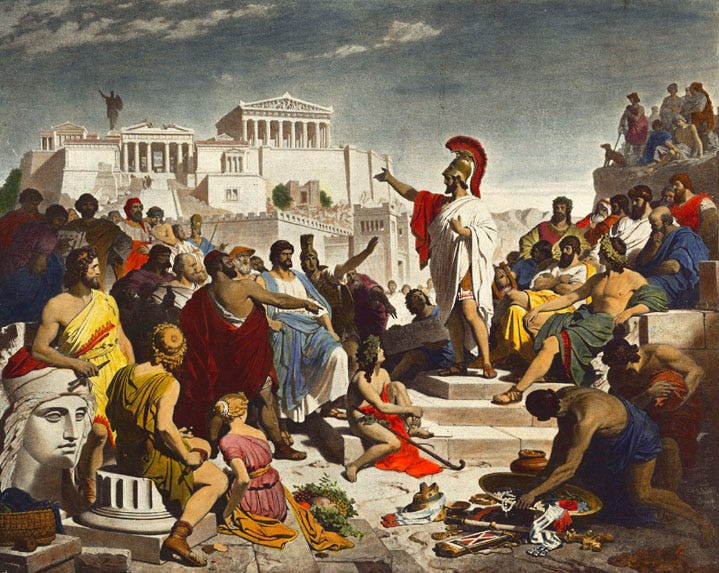
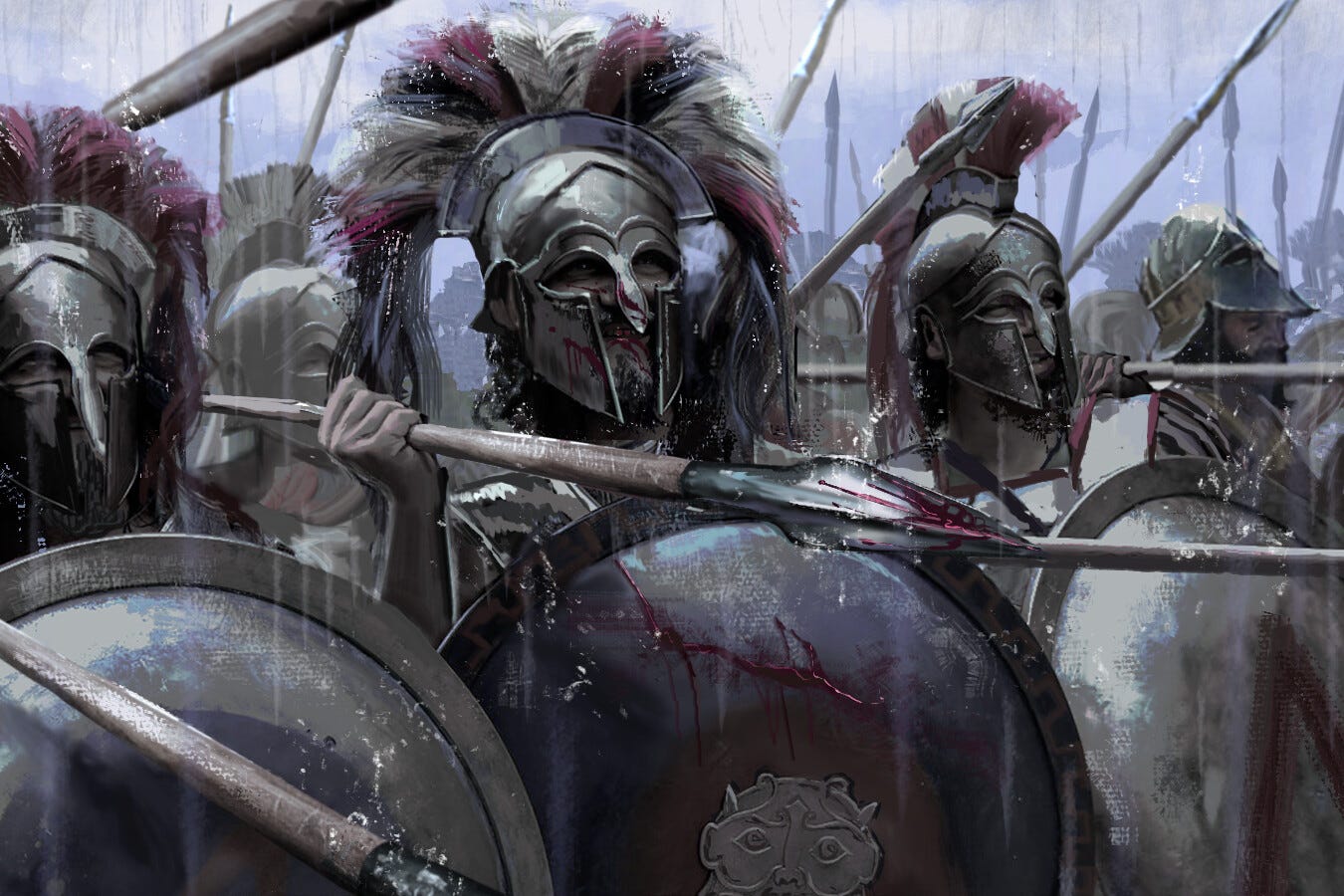
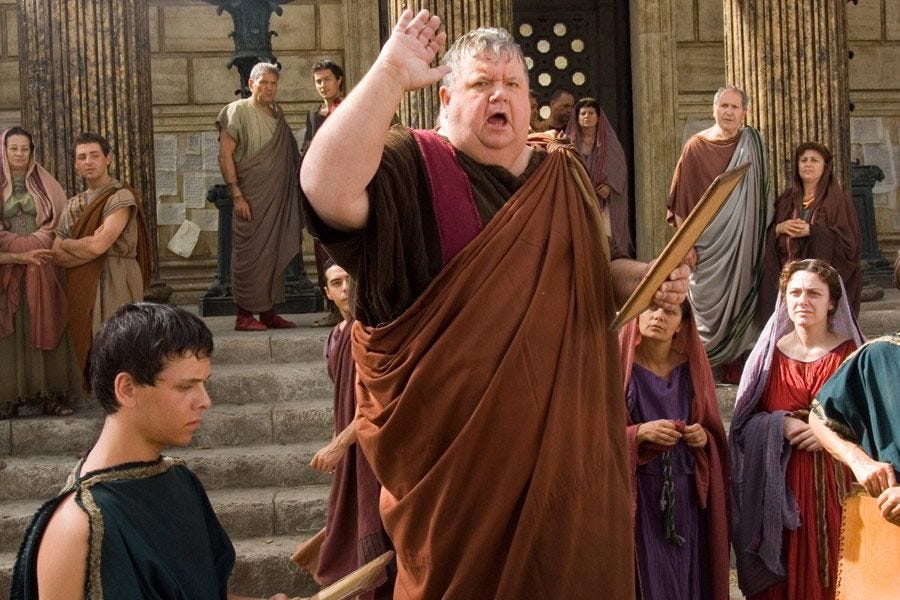



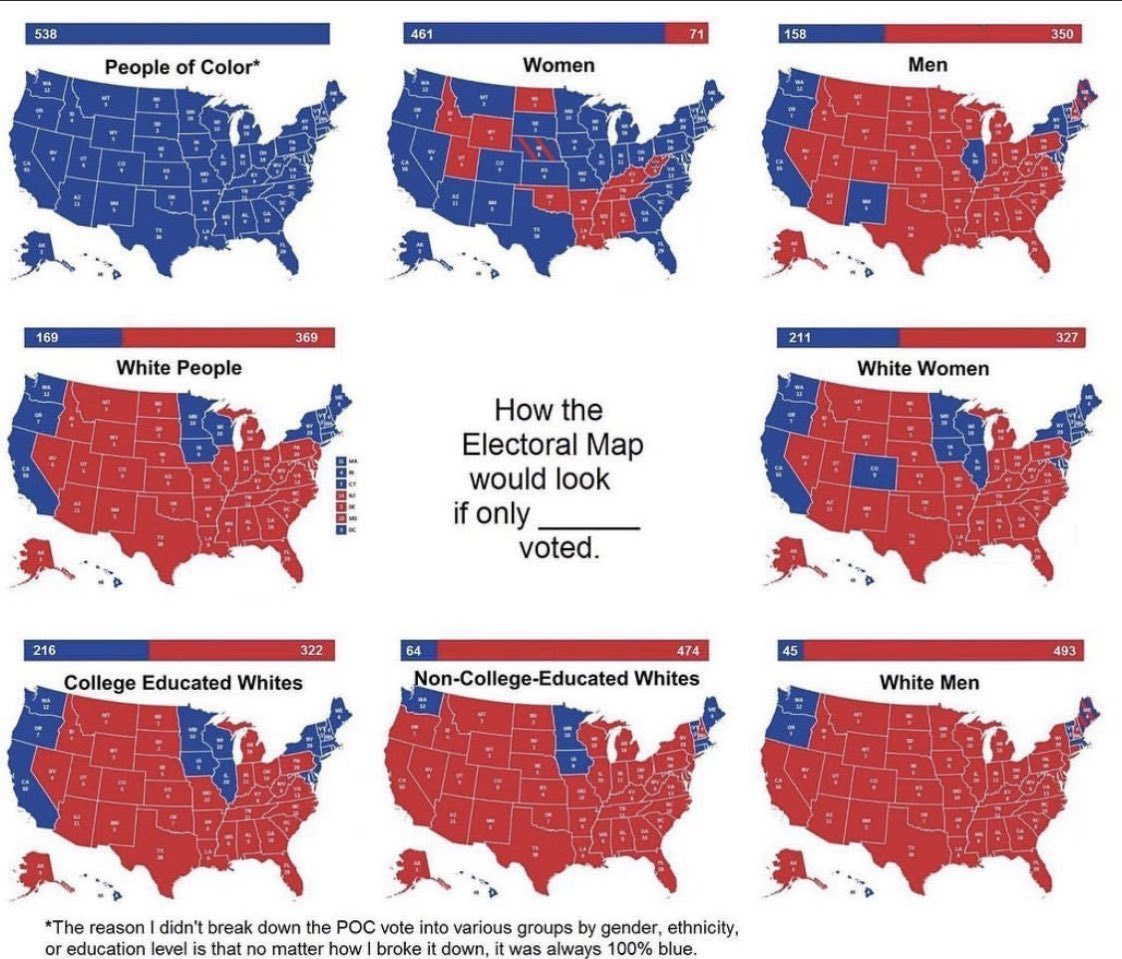
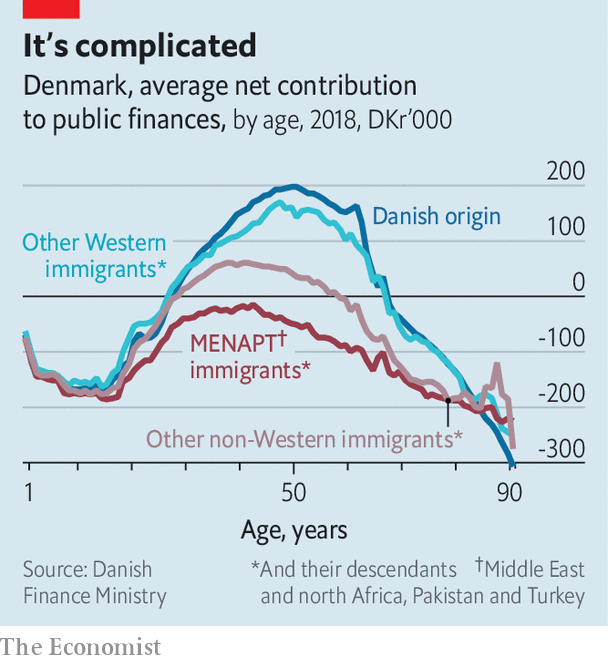
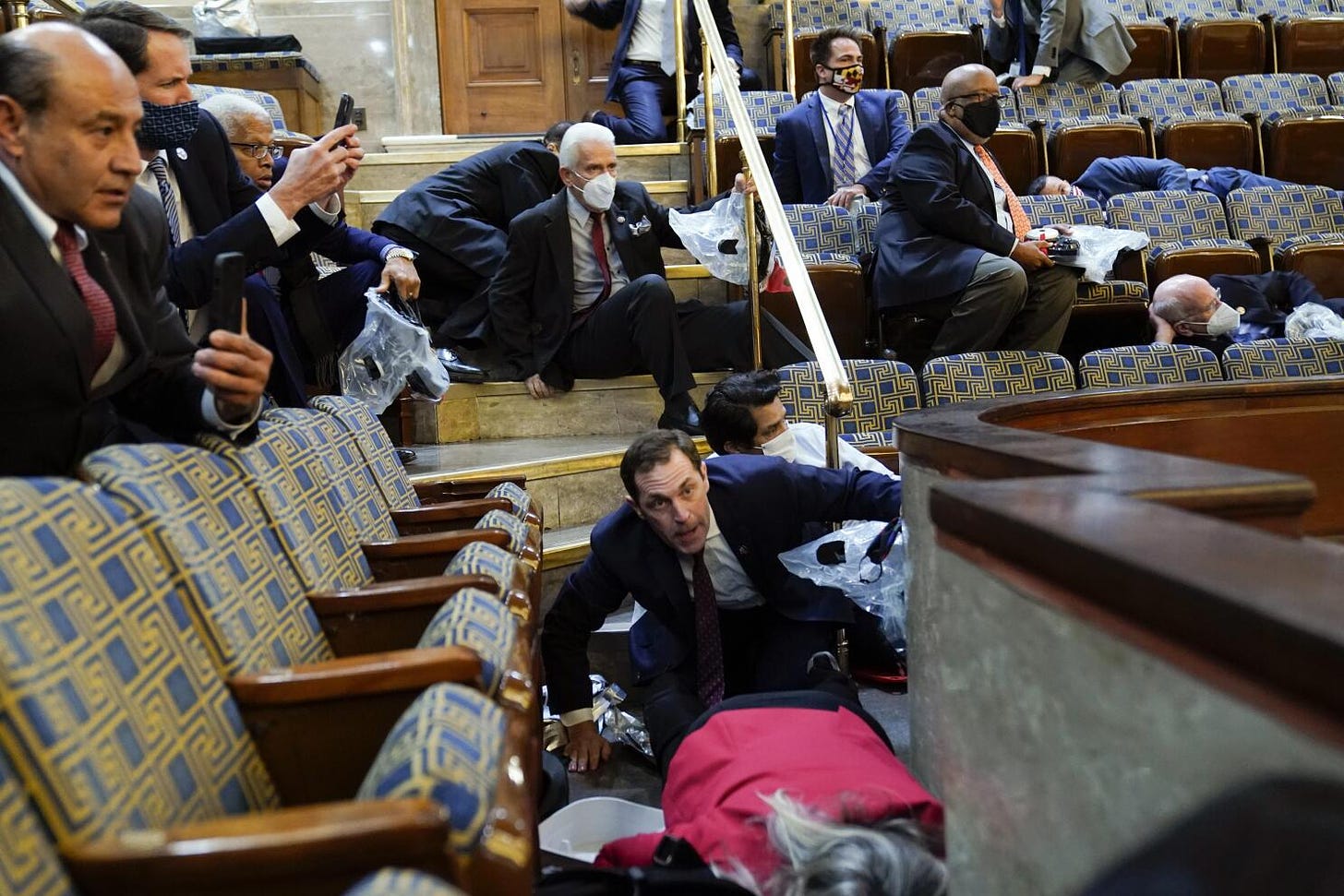



Brilliant analysis. Voting and democracy rarely are coincident. Liberty has to be fought for and won each cycle. Marxism only has to only be successful once.
A fearsome reputation is a better keeper of peace. The fist establishes boundaries. Pain increases the attraction of negotiation.